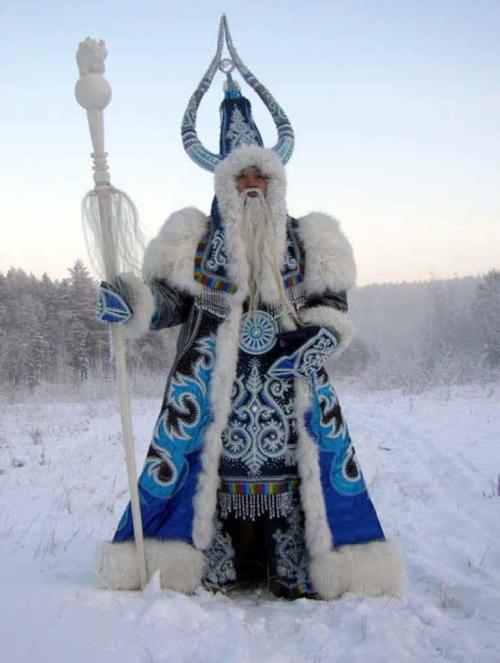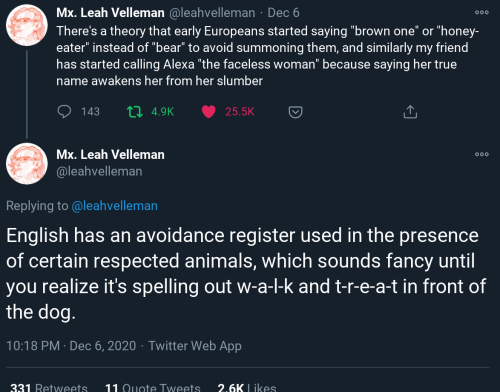"Go where we may, rest where we will, Eternal London haunts us still."
189 posts
I HAVE Formally Studied Japanese And Have Directly Experienced Some Of The Culture, And I Feel This Answer
I HAVE formally studied Japanese and have directly experienced some of the culture, and I feel this answer deserves an A+. :) If I may, I will add that Japanese pronouns are so complicated/fraught that most formal instruction that I’ve experienced discourages beginners from using them AT ALL. Which, as previously noted, happens a lot anyway. One thing that I’ve noticed is that in Japanese culture, oftentimes indirectness = politeness. The more direct you are (say, if you’re using specific pronouns and directly indicating the person you’re speaking to,) the stronger your language is and the more impolite it can be. This can lead to confusion for lots of Americans, as our culture tends to prize direct and forceful speaking...
Now I saw your post about honorifics, made me think of how Japanese language has a lot of "You" as well like kimi, temee, omae , kisama, anta and so on. But maybe it is because I am watching Naruto too much and didn't think some of them are actually rude to say them to Japanese people. I always thought "kimi" sounds really beautiful but it is apparently rude as well. I am sad. When I first learned English, I thought having only to say "you" to say is suck cuz it put everyone on the same level.
Japanese politeness registers are really complicated, and I am far from an expert. Basically I know enough to know how much I don’t know.
One thing that I think can be difficult for people from a (supposedly, but we won’t get into that) rankless society like the US or Australia is that the politeness of an utterance within a highly heirarchical society like Japan is not absolute but rather dependant on the relative rank of both the speaker and the listener.
In English speaking culture, “I’m so sorry sir, it won’t happen again” is deferential and polite and “oops, my bad” is casual and flippant and “watch it, I’m walking here” is rude. We can kind of see how the “oops, my bad” might be more or less appropriate depending on how bad the offence was and how close the speaker is to the wronged party, but English doesn’t really have a situation where a lower ranked person saying something to a similar ranked person is rude but to a higher ranked person it’s polite or so on to the way that Japanese might.
A great example because it comes up a lot is gomen ne vs gomen nasai vs sumimasen. Sumimasen can be as casual and rote as “oops, my bad” or “’scuse me” in some contexts and as humble and deferential as “I’m so sorry sir, it won’t happen again” in others. And “gomen nasai” can be as sincere and apologetic as “I’m really sorry, please forgive me” in some contexts and as whiny and inappropriately cutesy as “I’m so sowwy, pwease forgive me” in others.
So “omae” vs “anata” vs “kisama” and all these other choices of pronouns, it’s not as easy as saying “omae is rude.” “Omae” is rude when the speaker doesn’t have the right to address the other person that way. A boy refusing to use “omae” with another boy of the same age may be seen as prissy, fussy, etc. And “omae” is commonly used from husband to wife, and therefore from a male to a female lover generally… now this coincides with a lot of historically sexist stuff about Japanese marital relationships, but there’s no denying that there are plenty of people who sincerely find it romantic.
And Japanese gets more complicated than that because it’s not just pronouns but also how verbs are conjugated that modifies this politeness.
It’s also worth noting that since Japanese frequently drops pronouns altogether, even their use is often a deliberate stylistic choice!

^^^^ me trying to understand politeness registers in a language I’ve never even formally studied
-
 20inkrabbit liked this · 9 months ago
20inkrabbit liked this · 9 months ago -
 smi-gachan liked this · 1 year ago
smi-gachan liked this · 1 year ago -
 theneverfadinglands liked this · 2 years ago
theneverfadinglands liked this · 2 years ago -
 itachnii reblogged this · 2 years ago
itachnii reblogged this · 2 years ago -
 luissafca liked this · 4 years ago
luissafca liked this · 4 years ago -
 cezulian liked this · 4 years ago
cezulian liked this · 4 years ago -
 neverceasefromexploration reblogged this · 4 years ago
neverceasefromexploration reblogged this · 4 years ago -
 hareugo liked this · 5 years ago
hareugo liked this · 5 years ago -
 captstardustsailor liked this · 5 years ago
captstardustsailor liked this · 5 years ago -
 talitha-naveena liked this · 5 years ago
talitha-naveena liked this · 5 years ago -
 deficient-mochi liked this · 5 years ago
deficient-mochi liked this · 5 years ago -
 lv5fancapacenindafinare liked this · 5 years ago
lv5fancapacenindafinare liked this · 5 years ago -
 smol-sunnie liked this · 6 years ago
smol-sunnie liked this · 6 years ago -
 krankyprincess reblogged this · 6 years ago
krankyprincess reblogged this · 6 years ago -
 theniceanonymousfan liked this · 6 years ago
theniceanonymousfan liked this · 6 years ago -
 mazuru7 reblogged this · 6 years ago
mazuru7 reblogged this · 6 years ago -
 mazuru7 liked this · 6 years ago
mazuru7 liked this · 6 years ago -
 bunchesofstuffs liked this · 6 years ago
bunchesofstuffs liked this · 6 years ago -
 tohoang liked this · 6 years ago
tohoang liked this · 6 years ago -
 xenowlsome reblogged this · 6 years ago
xenowlsome reblogged this · 6 years ago -
 magicalgirlalle liked this · 6 years ago
magicalgirlalle liked this · 6 years ago -
 moray-amore liked this · 6 years ago
moray-amore liked this · 6 years ago -
 eggyulks liked this · 6 years ago
eggyulks liked this · 6 years ago -
 monsterqueers liked this · 6 years ago
monsterqueers liked this · 6 years ago -
 monsterqueers reblogged this · 6 years ago
monsterqueers reblogged this · 6 years ago -
 not-so-terrible reblogged this · 6 years ago
not-so-terrible reblogged this · 6 years ago -
 fandomgirl394 liked this · 6 years ago
fandomgirl394 liked this · 6 years ago -
 not-so-terrible liked this · 6 years ago
not-so-terrible liked this · 6 years ago -
 thisisnonshiens liked this · 6 years ago
thisisnonshiens liked this · 6 years ago -
 rainbowfoxes reblogged this · 6 years ago
rainbowfoxes reblogged this · 6 years ago -
 olikook liked this · 6 years ago
olikook liked this · 6 years ago -
 i-doled liked this · 6 years ago
i-doled liked this · 6 years ago -
 killmeblondie liked this · 6 years ago
killmeblondie liked this · 6 years ago -
 nightingale-kypm liked this · 6 years ago
nightingale-kypm liked this · 6 years ago -
 nightingale-kypm reblogged this · 6 years ago
nightingale-kypm reblogged this · 6 years ago -
 strongman-freakshow liked this · 6 years ago
strongman-freakshow liked this · 6 years ago -
 alicehuntt liked this · 6 years ago
alicehuntt liked this · 6 years ago -
 slightlybanjaxed reblogged this · 6 years ago
slightlybanjaxed reblogged this · 6 years ago -
 eruditeempress liked this · 6 years ago
eruditeempress liked this · 6 years ago -
 yamayoki liked this · 6 years ago
yamayoki liked this · 6 years ago
More Posts from Londonexile
Twitter should have done this four years ago!!
Tonight just keeps getting better and better:







HOW?!










mniammniam_bez_glutenu on Instagram
Follow So Super Awesome on Instagram
I love this snow wizard family.

The Russian Santa Claus in Siberia (The eastern part of Russia situated in Asia). He’s known as Ded Moroz. -Merry Xmas from Universal Beauty

There’s a theory that early Europeans started saying “brown one” or “honey-eater” instead of “bear” to avoid summoning them, and similarly my friend has started calling Alexa “the faceless woman” because saying her true name awakens her from her slumber
English has an avoidance register used in the presence of certain respected animals, which sounds fancy until you realize it’s spelling out w-a-l-k and t-r-e-a-t in front of the dog.
Mx. Leah Velleman on twitter
